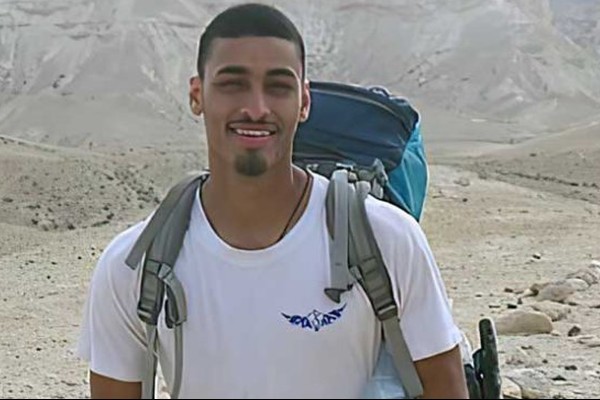Israelis thronged hospital parking lot to recite selichot prayers; a separate Tehillim campaign also took off.
By Pesach Benson, United With Israel
In Jewish tradition, reciting Tehllim (psalms) is a powerful and comforting measure in times of difficulty, particularly in times of critical illness or danger. Composed by King David, who faced many tribulations and joys, Tehillim offer solace and source of spiritual merit for the people in whose name they are recited.
That helps understand why a project to recite Tehillim for Israeli Border Police St.-Sgt. Barel Shmuel has taken off way beyond the organizer’s expectations, and why thousands of Israelis gathered outside his hospital, Beersheva’s Soroka Medical Center, to pray for his recovery.
Organizers asked people to recite one chapter of Tehillim and to pray “for the healing of Barel Ben Nitza, the soldier who was wounded on the southern border.”
Barel ben Nitza (Barel, the son of Nitza) is Shmueli’s Hebrew name.
He was shot in the head by a Palestinian Islamic Jihad terrorist on Saturday during clashes along the Gaza border.
After undergoing several surgeries, Shmueli remains in serious condition, unconscious and intubated.
According to a web site set up by the Tehillim organizers, 55,462 chapters have been said by 20,469 people. That’s the equivalent of the entire book of Psalms being recited 366 times. (Click here to participate.)
On Monday night, thousands of Israelis gathered outside the hospital to say Selichot, penitential prayers traditionally said during the month before Rosh HaShanah, the Jewish new year. The widespread custom is to begin reciting the Selichot at midnight. The crowd prayed for Shmueli’s recovery and was a powerful symbol of Jewish solidarity.
1 o'clock last night thousands congregated for Selichot prayers outside Soroka Hospital, where 21 year old border policeman Barel Hadaria Shmueli is fighting for his life after being shot point blank by a Palestinian terorist on the #Gaza border on Saturday. pic.twitter.com/1NMR57kFEg
— Imshin (@imshin) August 24, 2021
